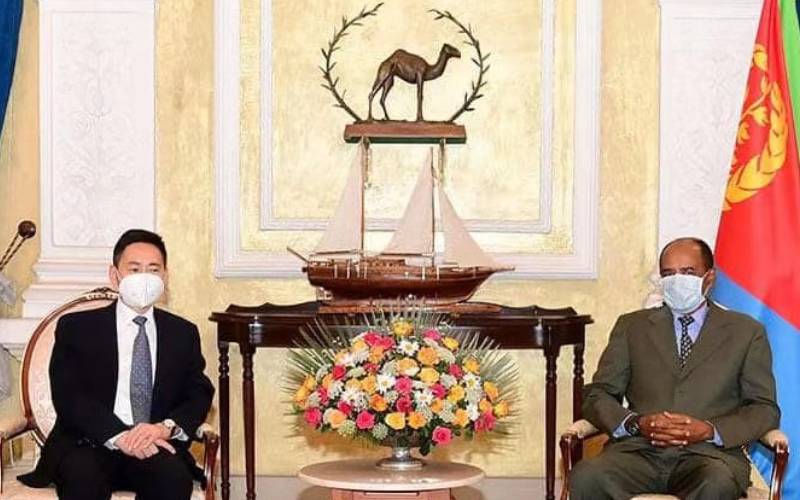×
The Standard e-Paper
Fearless, Trusted News

President Isaias Afwerki in Asmara with Ambassador Xue Bing. [Twitter, @ChinaEmbEritrea]
The newly appointed Chinese envoy for the Horn of Africa, Ambassador Xue Bing, is currently on his inaugural visit to the region that has so far taken him to Kenya, Eritrea, Ethiopia, South Sudan and Somalia.